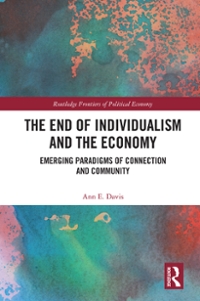Question
Case Study A ginger beer powder business had targeted 2025 to make its foray into the rest of the SADC region, but massive sales boost
Case Study
A ginger beer powder business had targeted 2025 to make its foray into the rest of the SADC region, but massive sales boost from customers using their product to brew beer during South Africa's booze bans helped it expand to five countries already. Now the garage startup is turning over more than a quarter of a million rand a year, with an employee count of more than 200. Each time the South African government instated alcohol prohibitions, the company saw sales spikes, which moved in tandem with the beer home-brewing market galvanised by the bans. Consumers flocked to get packets of the powder ginger beer, with one of them taking to social media with their homemade beer. That created a craze, and the product grew in popularity. Supa Ginja, whose product is essentially a traditional ready-mixed ginger beer powder, is combined with water and then fermented. Its 5kg and 50kg bags make 5 litres and 50 litres worth of drinking juice respectively, ready to drink in 24 hours. On the whole, the Covid-19 alcohol bans were largely positive for the company, even though it was a "roller coaster", Johan Pretorius, CEO of Supa Ginja said. Speaking to Business Insider South Africa, Pretorius said the sales had evened out by the end of the lockdown. "We had ups and downs. We had periods where we were selling a lot, and we had periods where we couldn't sell, and there were troubles with wholesalers... what did happen is our name got out there," he said
The company's growth helped accelerate its expansion plans, helping it enter South Africa's neighbouring countries well before its target. "We had a marketing campaign that would have gone through 2025. We wanted to go to our bordering countries, but what happened with the lockdown and with the product's name going out [is that] it sped up our marketing campaign by five years," he said. "We started with Botswana, that had a massive effect. And then Lesotho, Swaziland, and then Namibia and Zambia," he said. The company, which recently signed a deal with Shoprite, is working with the retailer to supply the whole continent and manufacture a private-label ginger beer powder for the retail chain. It is also working on a cider flavour, and plans to release a variant every year. Supa Ginja is a family business founded by Pretorius and his father in 2008 out of their 32m2 garage in the North West. At inception, it had just three employees and has managed to grow its staff complement to more than 200 people. The company started with capital of about R50,000, and now generates an annual turnover of between R250 million and R300 million. "Shoprite has given us a national footprint, which created many new jobs due to more traceability and quality control requirements. We also expanded our sales and admin teams to keep up with the rising demand and incoming orders," Pretorius said of the Supa Ginja's Shoprite partnership.
Questions:
It is important when starting a business to consider both economic and accounting costs. Johan Pretorius at the beginning of COVID-19 was considering leaving his current job permanently to focus on their family business which was founded in 2008. His current job pays R 1 200 000 per year, and Supa Ginja sells instant ginger beer at R14 for a 500g bag. Johan is thinking that if the business takes off during the alcohol ban imposed by government, he can sell 5kg and 50kg bags. Based on market research, he projects to sell 15 000, 500g bags per month. He anticipates that his annual over- head costs and operating expenses will amount to R 400 000.
a) If Johan decides to embark on his new venture, what will his economic costs be? (2)
b) Suppose that Johan estimated selling price is lower than originally projected during the first year. How much revenue would he need in order to earn positive accounting profits and positive economic profits? (2)
c) Considering the first year of production, would you say that Johan will make the right decision if he decides to focus on the family business based on the information provided in the question?
Step by Step Solution
There are 3 Steps involved in it
Step: 1

Get Instant Access to Expert-Tailored Solutions
See step-by-step solutions with expert insights and AI powered tools for academic success
Step: 2

Step: 3

Ace Your Homework with AI
Get the answers you need in no time with our AI-driven, step-by-step assistance
Get Started


